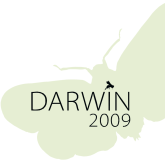 |
Jeg foretrekker norsk tekst
Decision theory and the crossfertilisation
between economics and evolutionary biology
With Gaute Torsvik
Wednesday 21 October 19:00
Auditorium Egget, Student centre, Parkv 1, Nygårdshøyden
Economists use decision theory to explore how humans ought to behave if only they
were smart enough. Homo oeconomicus is a fictitious being, equipped with consistent
preferences and an unlimited capacity to identify and solve any problem optimally at
no cost in no time. In contrast, biologists explore how animals with their limited mental
capabilities actually behave in natural situations. It does not seem a feasible question
to ask how animals ought to behave. Yet, there is a link between normative economic theory
and its empirical biological counterpart. Darwinian evolution often creates traits that
look to an observer as if the animal did care about the economist's advice. Therefore,
economic analysis of animal behavior has become a flourishing field in which games and
markets play an important role. I examine the theoretical foundation of this field and
illustrate conceptual issues with biological examples of trade, advertising, partner
choice, and cooperation. I also discuss the impact of evolutionary biology on current
thought and empirical activities in economics.
Peter Hammerstein
is Professor at the Department of Theoretical Biology at the Humboldt University in Berlin, Germany.
His research combines economy and biology, nature and culture, and animal and human behaviour,
all interpreted in the light of evolution.
Gaute Torsvik
is Professor at the Department of Economics at the University of Bergen. In addition to his academic publications
on incentives in economics and politics, he has authored the book
Human nature and the structure of societies: A critical introduction to
the theory of economics [In Norwegian] (2003).
Free admission. The lecture is suitable also for non-biologists and will be held in English. Welcome!
Academic lecture:
Poison-antidote systems in nature and culture
Peter Hammerstein
Thursday 22 October 10:15
Auditorium 101, Jahnebakken 5 (Microbiology building), Nygårdshøyden
In host parasite interactions there is usually little scope for cooperation. It would seem
maladaptive, for example, if hosts actively provided their parasites with resources,
helped them to survive and facilitated their transmission into offspring. Intracellular
bacteria of the genus Wolbachia demonstrate impressively, however, that this view
of host parasite relationships is far too simple. Many strains of Wolbachia are known
for a dual way in which they manipulate their hosts. In males they "poison" the sperm. In a
female's egg they offer an "antidote" if the egg is infected. Females of an infected
population would then often be under selection to "pay protection money" in order to "buy"
the rescue of eggs in fusions with manipulated sperm. Less figuratively speaking, our models
show for a wide range of parameters that natural selection would program females to support
the bacteria even if the latter significantly reduced female fecundity. This is probably one
of the main reasons why more than half of all insect species seem to be infected with
Wolbachia. The bacterial poison-antidote system can strongly influence host evolution
since it facilitates genetic divergence, local adaptation, and speciation. Wolbachia
are not the only organisms employing a poison-antidote system. In particular, human business
often prospers on the basis of structurally similar manipulations. The talk also addresses
the general issue of how manipulative strategies evolve and how to explain human drug
seeking behavior.
darwin.uib.no
|
|



